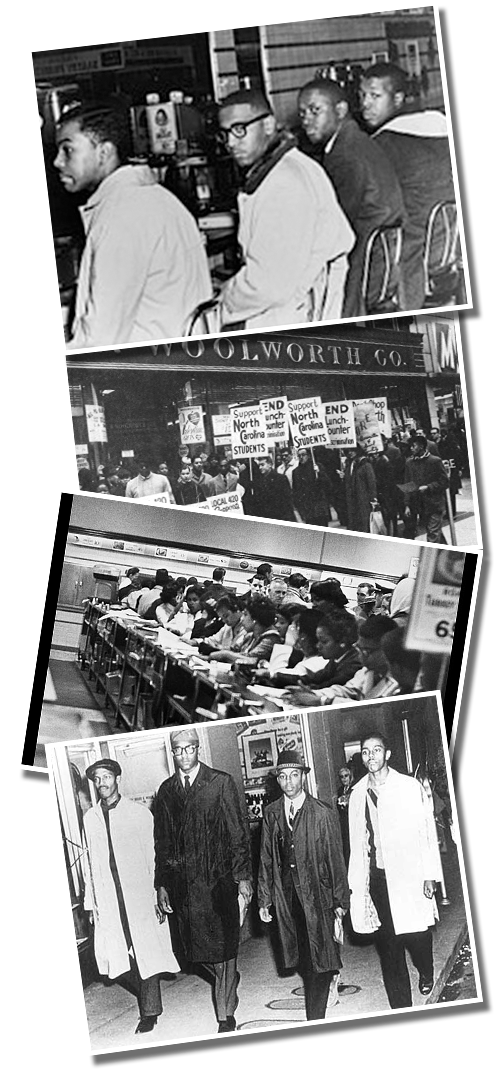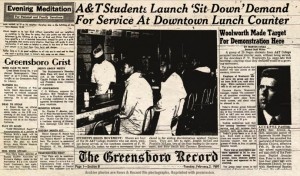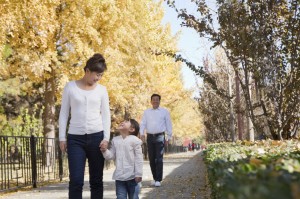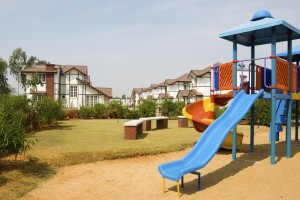Have you ever wanted to change something about your neighborhood or within your community?
 Well, four college students did just that!
Well, four college students did just that!
In the early 1960’s, on February 1, 1960, four African American college students in Greensboro, North Carolina sat at the “whites only” lunch counter of a Woolworth’s department store as a nonviolent protest of the store’s policy of racial segregation.
This sit-in prompted other sit-ins in North Carolina and across the country. Within 6 months, the entire Woolworth’s chain was desegregated and the African American Civil Rights Movement had received increased national attention and momentum.
How did the action of a few students at one lunch counter receive national attention and become such an important influence on the Civil Rights Movement?
 By the second day of the Greensboro protests, newspaper reporters and photographers had learned of the sit-in and they were at the Woolworth’s to document the peaceful demonstrations. The photos presented here were published in the Greensboro newspaper and eventually distributed nationwide. This example of social change also demonstrates the power of documentary photography.
By the second day of the Greensboro protests, newspaper reporters and photographers had learned of the sit-in and they were at the Woolworth’s to document the peaceful demonstrations. The photos presented here were published in the Greensboro newspaper and eventually distributed nationwide. This example of social change also demonstrates the power of documentary photography.
Think about some of the things you really like about your community. Maybe you have great public parks or lots of options for youth to become involved in music, theater, and visual arts. Now think of something you do not like about your community. What would you like to change if you could? What do you wish was different?
Social change includes any event or action that affects a group of individuals that share the same values or characteristics. By thinking about what you would like to see changed in your community, you have taken the first step towards social change.

 Social change is trying to influence aspects within a community’s:
Social change is trying to influence aspects within a community’s:
- environment (e.g., walking paths, abandoned buildings)
- organizations (e.g., schools, government)
- behaviors (e.g., littering, drunk driving, discrimination)
- policies (e.g., taxes on cigarettes, no texting while driving, age restrictions on alcohol)
- conditions (e.g., poverty or civil war)
You are the expert in your community. You are the one with the knowledge about what’s going on in your community. You’re the one with insights that others may not have.
